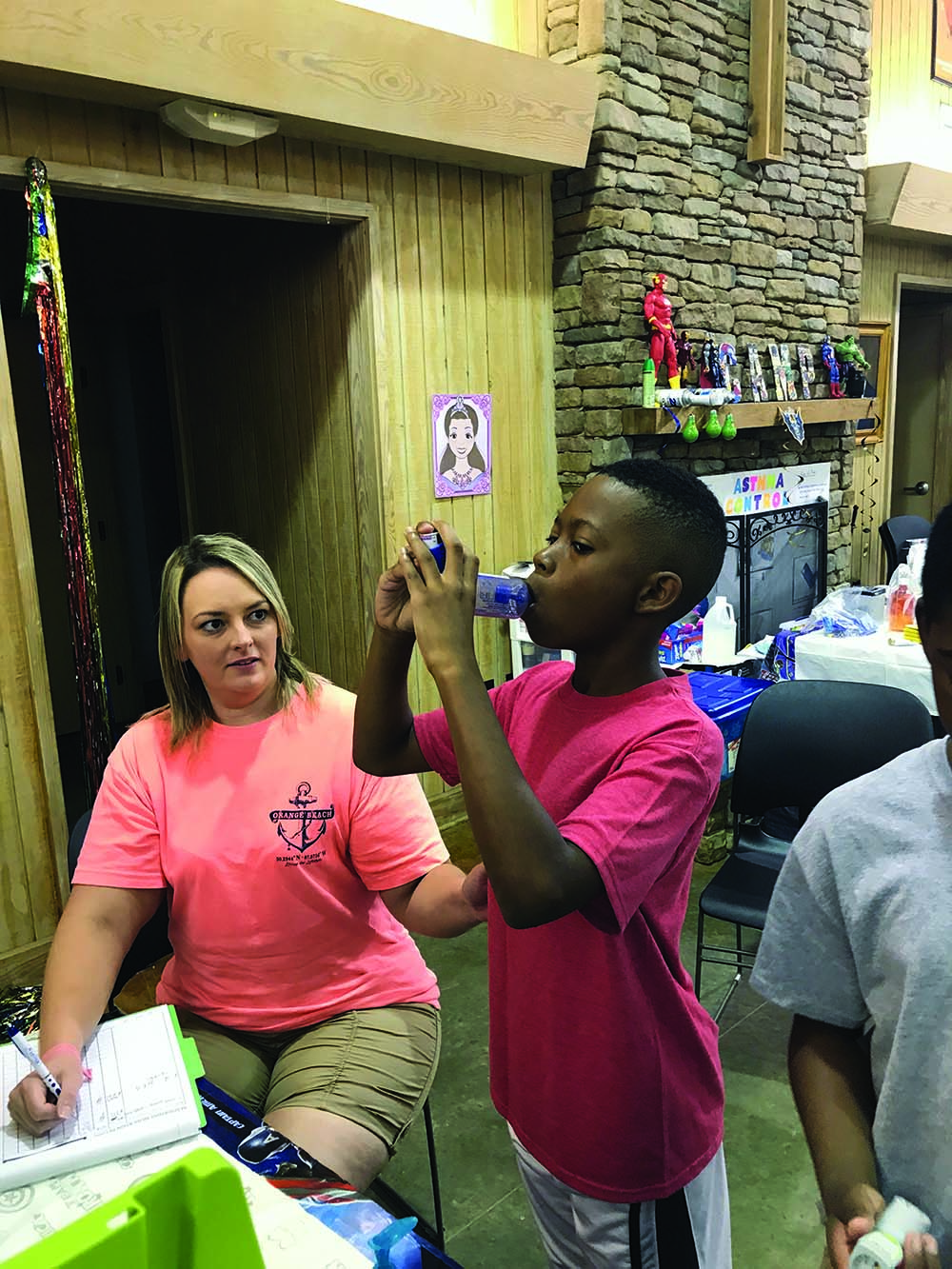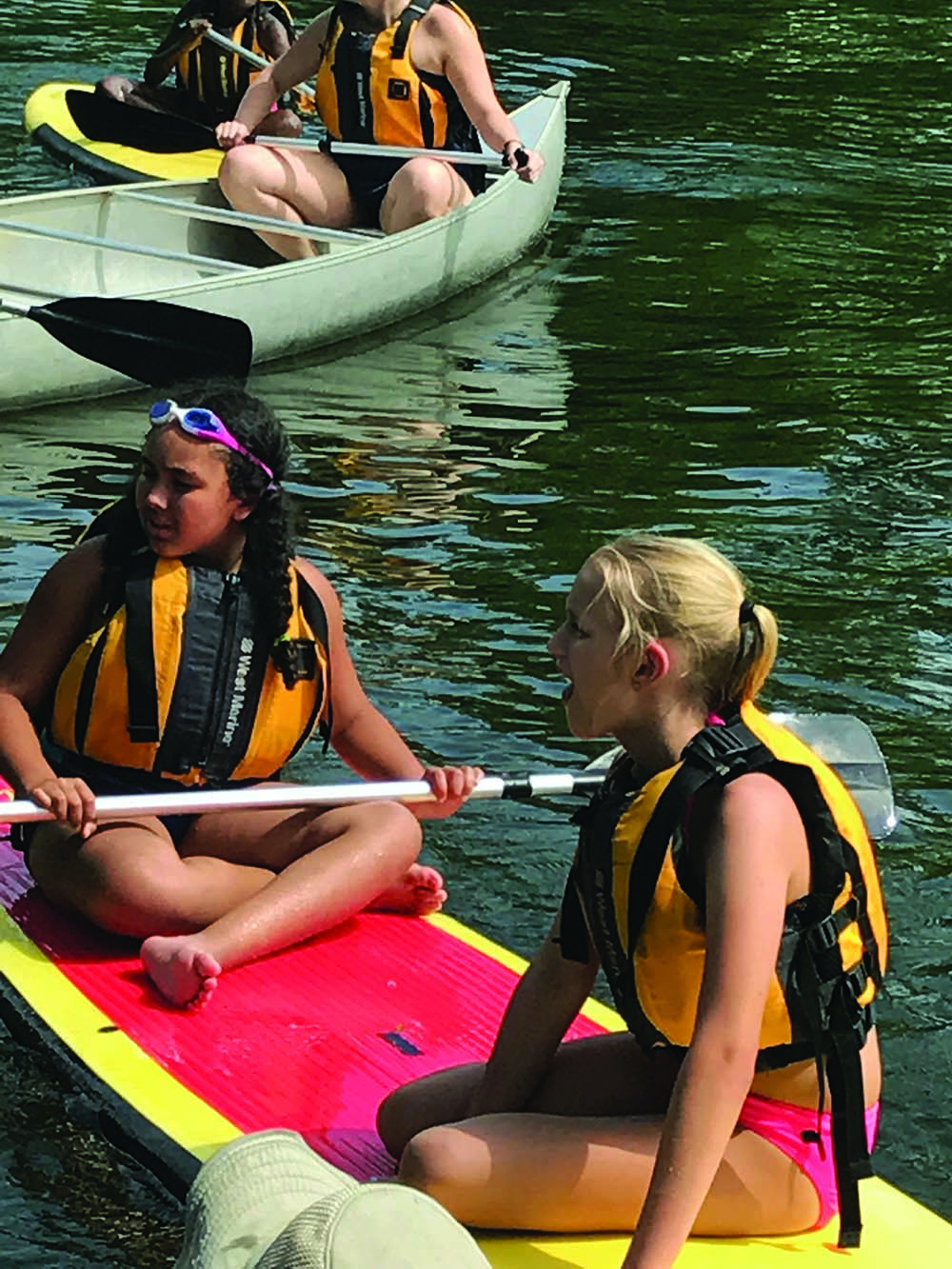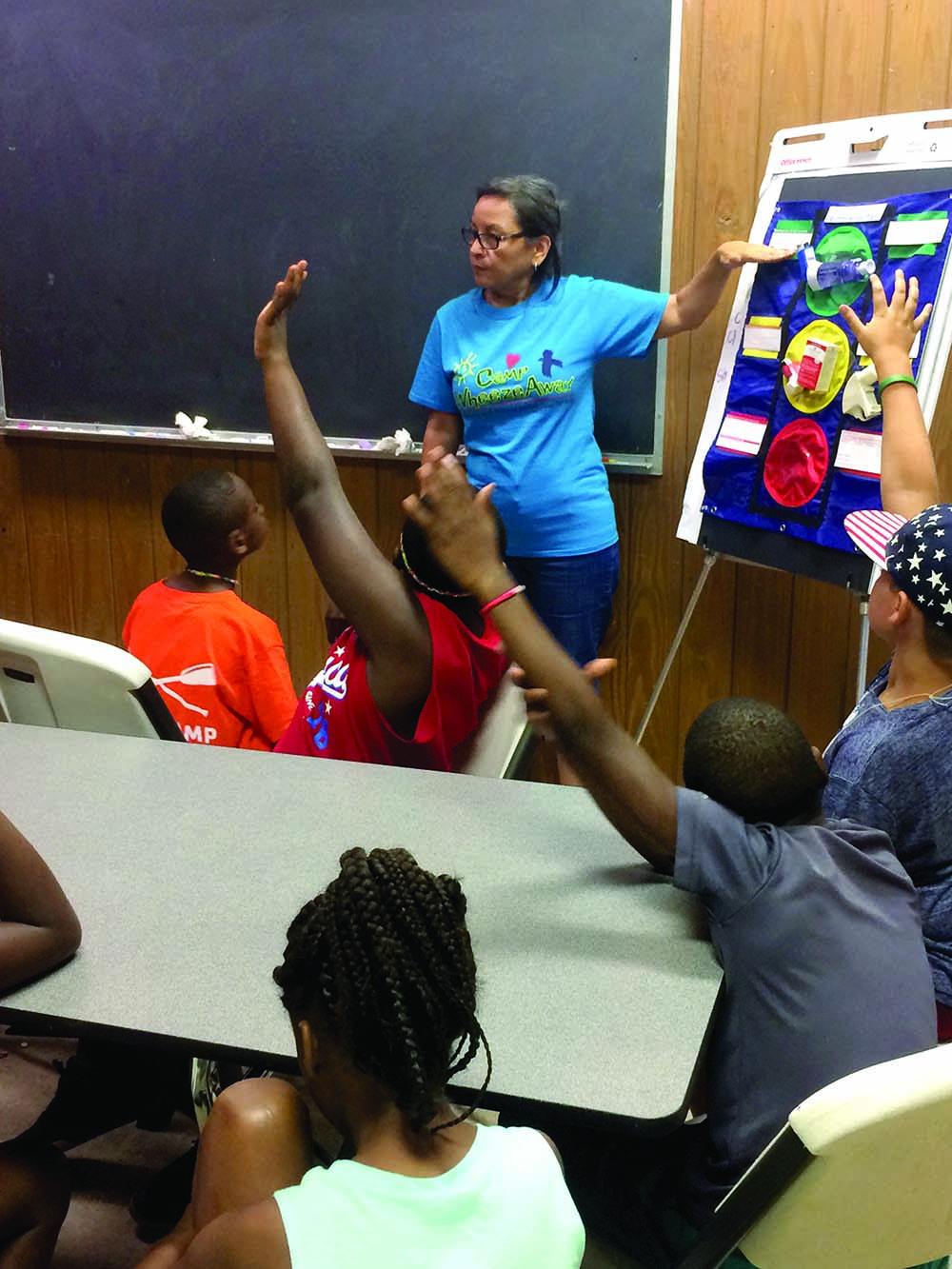
By Lori M. Quiller
Most recent Alabama data find one in every 10 Alabama adults, or 306,000, suffer from asthma. The data also show more than 12 percent of Alabama children are living with the chronic respiratory disease at some point in their lives.
Unfortunately, these children live sheltered lives trying to avoid the triggers that can induce an asthmatic episode. Summer camp was not an option for these children – until Camp WheezeAway opened.
“Camp WheezeAway is one of the longest-running asthma camps in the country. It’s a memorial camp dedicated to Patsy Ruff, who was the world’s first successful double lung transplant in 1987,” explained Dr. Amy CaJacob, a pediatric allergist/immunologist and the camp’s medical director.
“Patsy had asthma, COPD and was a smoker for 22 years. One of the things Patsy wanted was a camp for kids because when she was growing up with asthma, she couldn’t go to a summer camp like her friends. She really wanted kids with asthma to have a normal summer camp experience that she never had, and that’s what we try to do at Camp WheezeAway.”

Education as well as fun
Camp WheezeAway is celebrating its 28th anniversary this year and is free to qualified applicants – youngsters ages 8 to 12 suffering from persistent asthma. Applications are due by May 1, and the camp is May 26-31 at YMCA’s Camp Chandler.
CaJacob explained the importance of education about asthma and how to handle its limitations is as much a part of the camp as having fun. Asthma affects nearly 25 million people of all ages and races. An estimated 7 million children have asthma, a chronic disease caused by inflammation of the airways in the lungs.
During an asthma attack, the muscles around the airway constrict, the lining of the airway passages swell, and the lungs produce excess mucus making breathing difficult, which can lead to coughing, wheezing and shortness of breath.
“Every year at camp on the last night we have a smokeless campfire at night after dinner,” she says. “We wheel around an oxygen tank and talk to the kids about the dangers of smoking. We tell them the story of Patsy Ruff, her surgery, and how the camp began. All the campers are at that age where they may want to experiment with smoking, and they are going to be making their own decisions about their health or possibly succumb to peer pressure about smoking. They need to understand how their decisions will affect their health.”
If you think asthma education is boring, think again. CaJacob and the staff of medical volunteers find new ways each year to make it as interactive and fun as possible for the campers – even if it involves grossing out some of the kids.

“We don’t want to bore the kids during the education section. The project I do every year is, well – we make mucus. It’s so messy, but the kids love it! The girls not as much as the boys, though,” she laughed. “We’ve done skits of how to avoid asthma triggers where the kids dress up as ragweed or cigarettes and a rescue inhaler. Sometimes it’s just hands-on training so they can learn how to use their inhalers.”
Camp co-founder Brenda Basnight said one of the best things about Camp WheezeAway is that it is a huge boost to a camper’s self-esteem and confidence. At school, they are often singled out for being different because they cannot take part in outdoor activities or physical education classes.
“The best thing I hear from these children is that at this camp, they’re not different. Everyone at this camp has asthma, and everyone at this camp takes medicine. No one makes fun of anyone, and the children don’t feel singled out for their medical condition,” Basnight says. “The camp really helps to build their self-esteem and confidence.”
Because many of the campers are prescribed medications for their asthma and told when to take it, they may not understand why they need that medication. According to Basnight, each camper leaves with a full understanding of their medication and how to use it.
“We make sure the children understand their medicine. Why they need it, what to do with it, when to do it, when they need extra medication … And, everyone has a plan of action when they leave so we know they fully understand the disease and their medications when they leave us,” Basnight says.
Being allowed to be normal

All in all, the campers get a well-rounded experience. From shaving cream battles, kayaking and horseback riding to rock climbing and archery – and anything you can think of doing in the lake – plenty of emphasis is placed on kids with asthma being normal kids.
In many instances, Camp WheezeAway is a camper’s first sleepover outside the home. Because campers are not allowed cell phones, CaJacob assures parents they should not worry. A mother herself, there are plenty of times when she shrugs off her physician’s coat for her mom hat.
“For a lot of our campers, it’s their first time away from home, and we get a lot of homesickness that first night. Part of my job is doctoring that week, but a lot of it is just being a mom! That first night the kids can’t sleep or have tummy aches, but when they settle in and start having fun, everything is just fine! Campers aren’t allowed cell phones, but we take plenty of photos and stay in touch with parents by sending them photos of the activities,” CaJacob says.
Camp WheezeAway operates solely by donations. No qualified child pays to attend Camp WheezeAway. All staff, including medical staff, are strictly volunteer. For more information regarding selection or medical qualifications and limitations, contact Brenda Basnight, CRT, at [email protected].
Donations are appreciated and can be made online at ymcamontgomery.org/camp/wheezeaway.n




